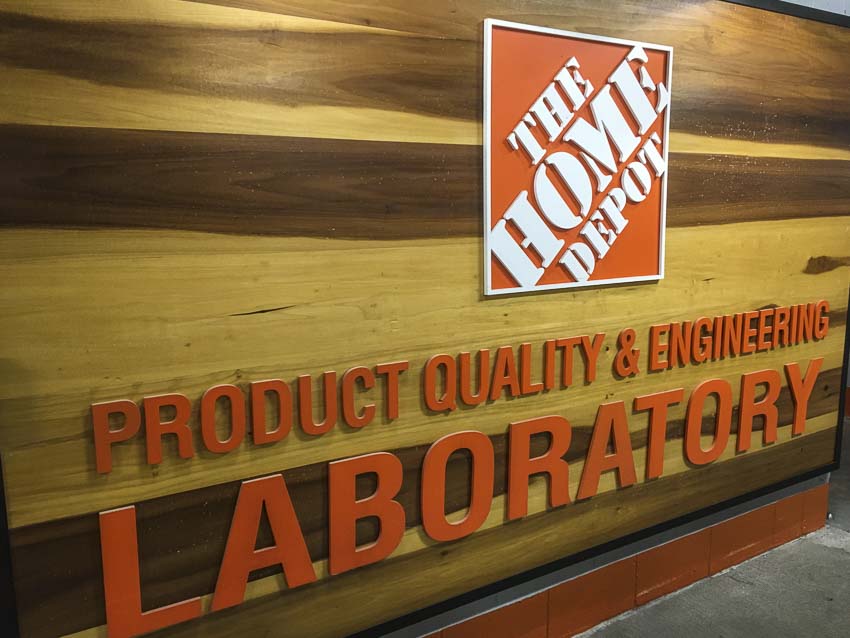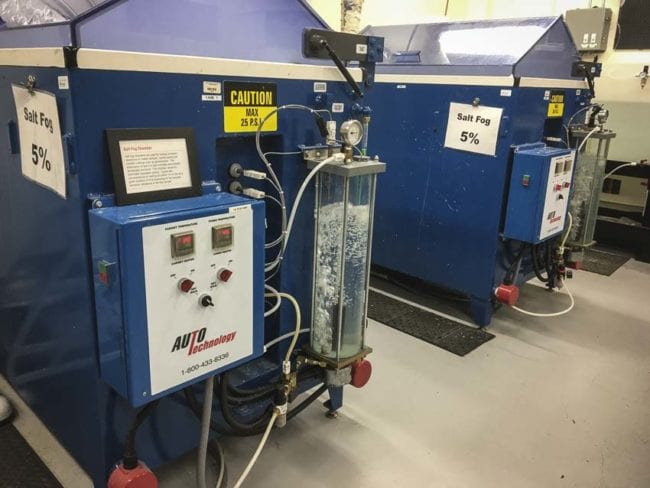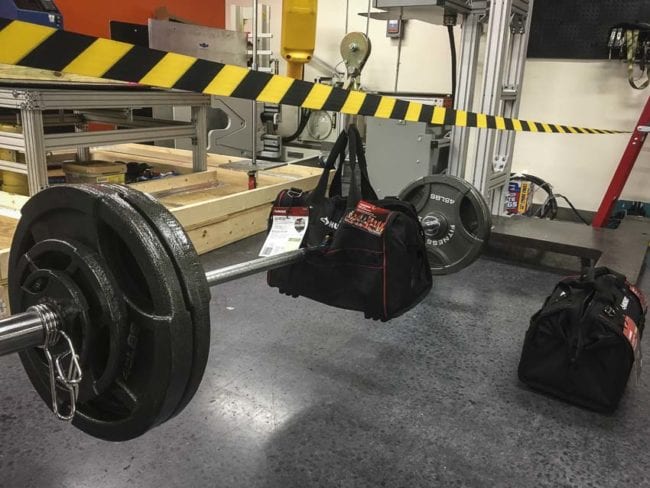Environmental Testing
In the next room, they simulated environmental conditions and long-term use of various tools and tool bags. They can test against dust and contaminants, temperature, pressure, and more. They even had a flashlight embedded in a block of ice. It still worked, of course.
We saw air compressors tested for cycle time, capacity, and having the correct PSI rating. We take that for granted—I’m glad that manufacturers and The Home Depot do not.
The Home Depot Product Quality & Engineering Laboratory also tests the durability of both products and packaging. Packages get tested to see how well they handle jostles and drops. People in the know call this the “FedEx test”, though it could just as easily be labeled the “UPS test.” The Home Depot also tests to ensure proper stackability. If you can’t get products palletized without crushing the bottom units—you’re in big trouble by the time they get to the stores.
Lighting and Material Testing
A couple integrating spheres let engineers test 1m and 2m lighting specs. They support up to a 4-foot fixture, and the spectrometer can give readouts for lumens and color analysis. This isn’t for certification, but rather for internal verification prior to sending to a third party agency like UL.
What is an Integrating Sphere?
An integrating sphere (or Ulbricht sphere) is pretty much just what it sounds like. It’s a spherically-shaped optical measuring device consisting of a hollow spherical cavity with its interior covered with a diffuse white reflective coating. It has holes for entrance and exit ports to allow for the sensors and power supply to the tested light. This allows for uniform scattering or diffusing of light for an accurate lumen or color reading.
Machines can also determine the type of plastic and materials used (resins/plastics and metals). FTIR (Fourier Transform Infrared) spectroscopy machines ensure the chemical compositions of each product matches the initial quality of a supplied sample. This lets The Home Depot know, for example, that a tool approved for manufacturing receives the same plastics and metals in mass production as were contained in the original sample.
One of the last things we saw during our Home Depot Product Quality & Engineering Laboratory tour had the testing team suspend 250 lbs from a Husky tool bag handle. Product testing can be fun!
They also used both linear and rotary abraders as well as tearing machines to measure what happens when tool bags contact concrete—or rather, drag across it repeatedly! Cool tests all around.
Conclusion
We’ve seen our share of manufacturer testing labs, including the Festool tool testing and qualification, and the Chervon Research and Development lab. Seeing a retailer so dedicated to ensuring product quality gave us a different take on things. When you think about it, however, it’s completely understandable. The Home Depot wants to ensure it’s delivering reliable products to its customers. Independent testing of their own branded tools, such as Husky, ensures they can meet those goals.
You can follow us on Facebook, Instagram, and Twitter for more coverage of tools and accessories from our event





